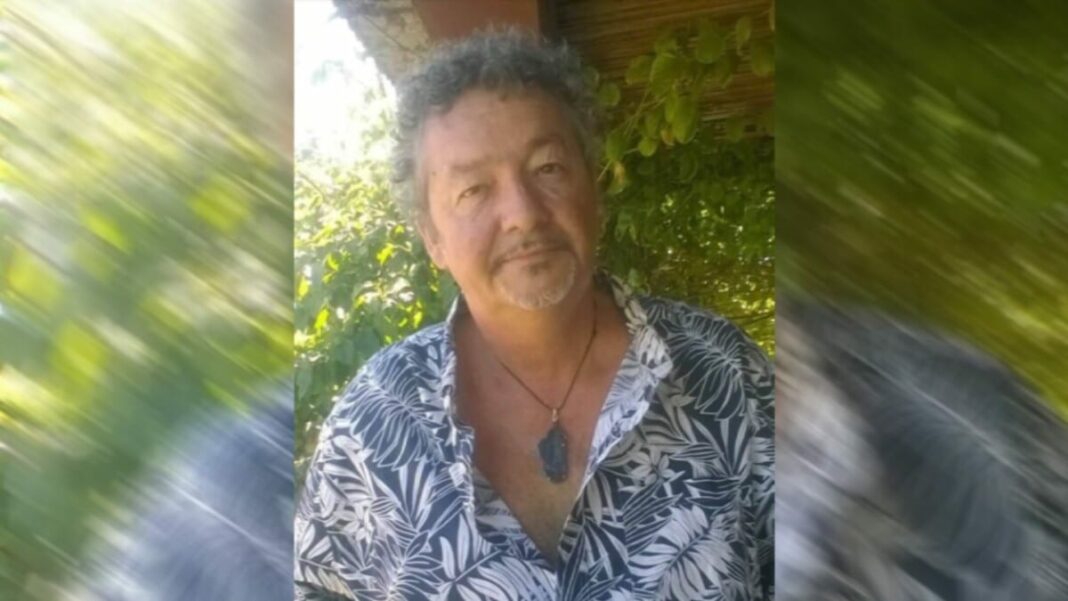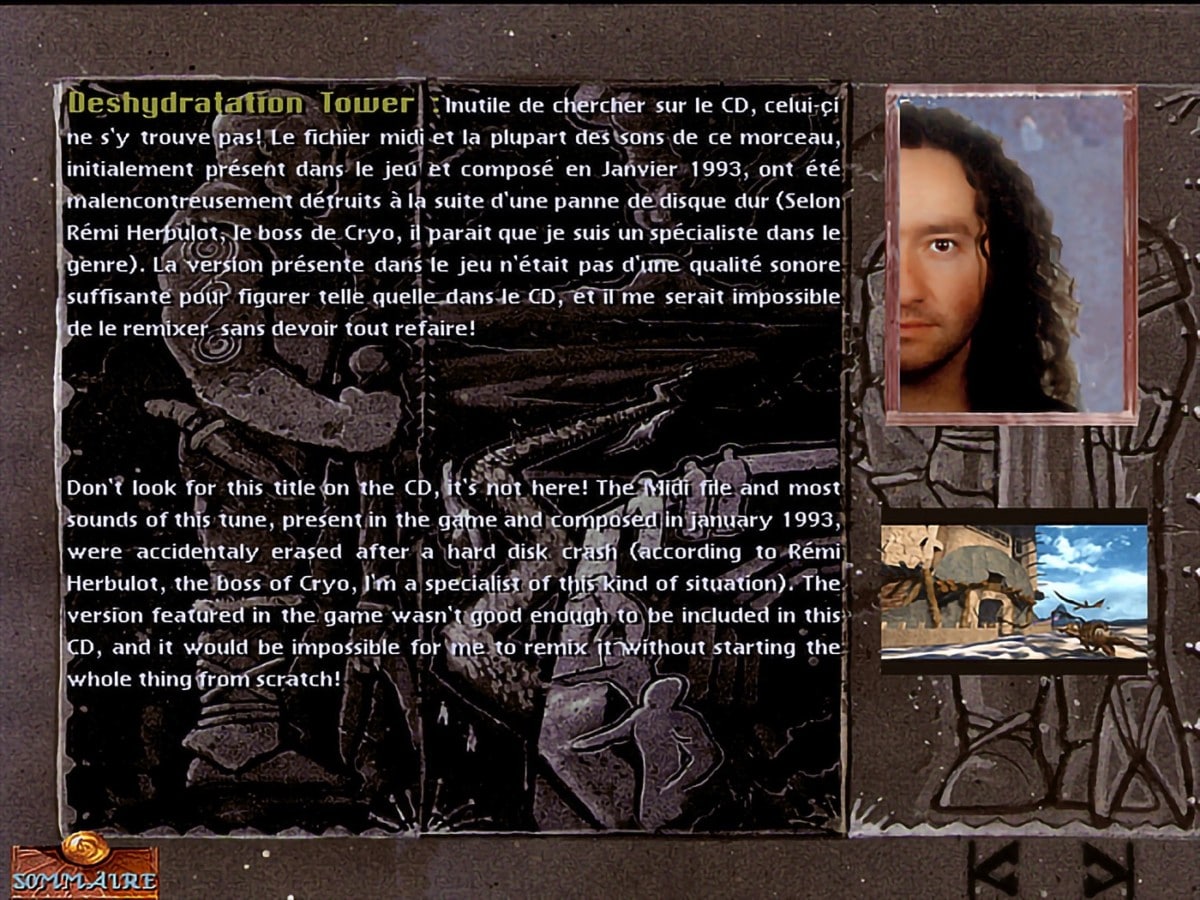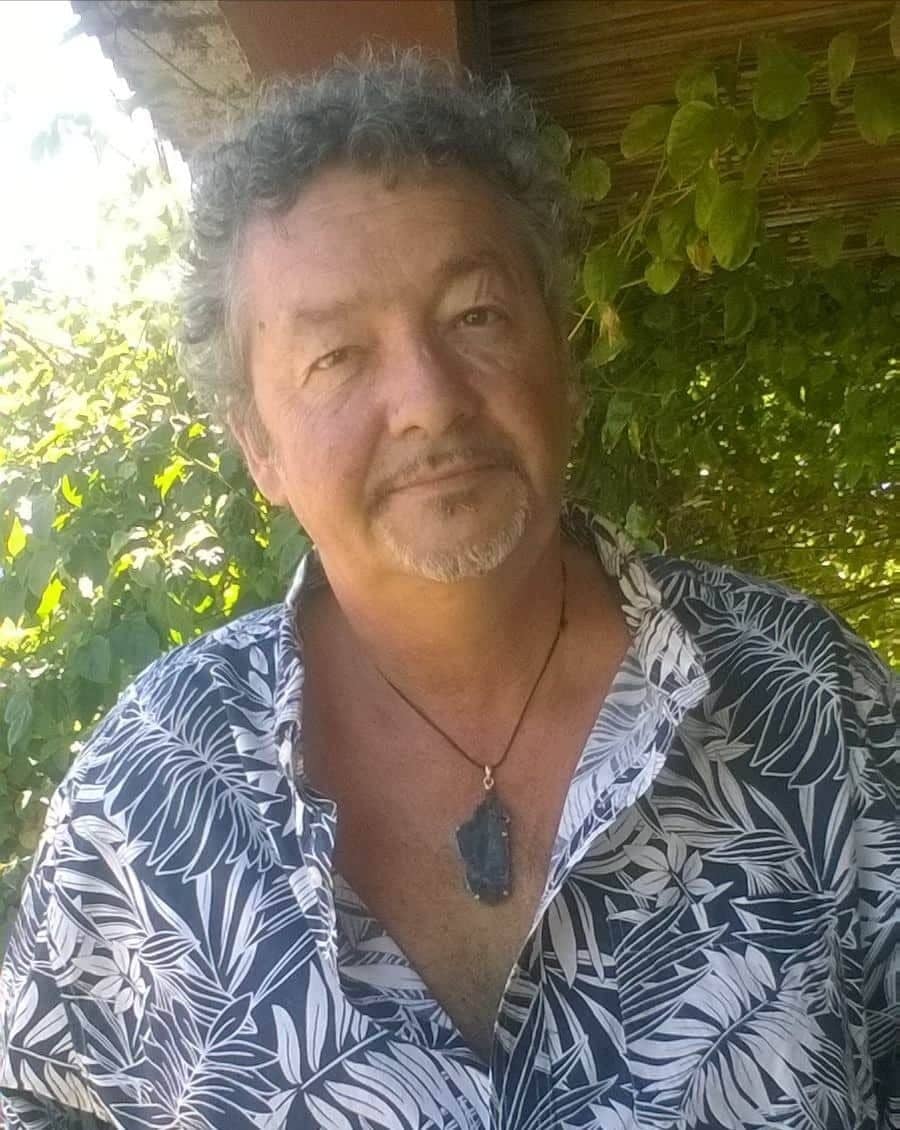Stéphane Picq is a French composer and sound designer who mainly worked for ERE Informatique/Exxos and Cryo Interactive. Among his most famous video game compositions are Dune and the emblematic soundtrack of Lost Eden.
Before music became his main activity, Stéphane started coding video games in 1983. It was while porting the games to various systems, including the Amiga, that he started adding music and sounds to the games. After working for several years as a composer and sound designer, he left France in 1998 and moved to Madagascar, where he currently resides. He now works in the field of gemstones.
In this interview, I talk with Stéphane about his background, his working methods, his influences, but also the reasons for his departure from the video game industry. Encounter with a gemstone of music.
Follow the link below to read the original interview in French.
Interview avec Stéphane Picq le compositeur de Lost Eden et Dune
Hello Stéphane, first of all thank you for granting me this interview. I’m really happy that we were able to schedule this interview. Before we start, for those of you who don’t know your background, can you introduce yourself?
Stéphane : I’ve been passionate about computers since I was a teenager, I programmed very early, first in Basic, then in machine code, then in C. I’ve been a computer programmer since I was a teenager. I was far from being bad, but tired of programming, an amateur musician by the way, I made a translation to video game soundtracks. The context and the demand were favourable at the time. What was a hobby became a profession.
On your website, you described yourself as ‘a fan of all music that modifies states of consciousness: shamanic ritual music, techno-trance, sacred music, and some meditative ‘new-age’ pieces. A human being, roommate of this planet, like you’. Today, does this description still seem right to you?
Stéphane : I think my spirituality of the time has been diluted a bit in the context of the harsh and gentle life in Madagascar, but I don’t deny anything. On the other hand, I would no longer say ‘roommate of the planet’, but ‘one of the cells of the planet as a global living entity, Gaia’.
From 1985 to 1987 you were in charge of the games section of Science & Vie Micro. Was this your first job related to video games?
Stéphane : No, I started coding in 1982, and released a little arcade game on ZX Spectrum in 1983, and another one later on Armstrad CPC 464. I also sold in stores the first computers with musical capabilities, the MSX, around the same time, and I was already a regular contributor to Ere Informatique before that. At Science & Vie Micro I was very badly paid, but I received all the latest games for free!
Do you keep a good memory of this time ?
Stéphane : Of course. We were enthusiastic pioneers, everything had to be done, in the beginning it was really the System D! And then we had a lot of freedom as creative people who weren’t salaried but paid in advance on sales, we made a lot of money too, if the game was a success…
How did you start in one of the first French software publishing companies, Ère Informatique?
Stéphane : After learning to program on my own, I produced a few insignificant games that were never commercialized, except for one of them (Lombrix), which appealed to this small, fledgling company. I should point out that I was never salaried, but only an author paid on sales.
I read that it was after a rejection of computer language that you discovered your path, music composition. Is the anecdote accurate?
Stéphane : Absolutely. My last game on Armstrad CPC 464 (Birdie) being a technical feat for the time, but with poor playability, ERE Informatique offered me to translate a game on Atari ST (Bubble Ghost) to Armstrad CPC 464, which I did without any difficulties, but then it was really a challenge to convert it to Commodore Amiga. I had to learn the C language in a few months, digesting hundreds of pages to master this complex computer, and coding thousands of lines!
It was exhausting, but I made a music in one night, which didn’t exist in the original version. Being both a coder and a musician, programming music on SoundTracker step by step, in hexadecimal, was a real pleasure. The company liked my music and offered me to do all the soundtracks and sound effects for their future games on Amiga. It was easy for me and very well paid for the time spent, unlike coding. Most of my best pieces of music were done in one night, or even in two or three days.
And that’s where you specialize in sampling and sound digitization, often with the means at hand. For example, you use an empty honey pot for the percussions of Lost Eden.
Stéphane : When I was nine years old, my birthday present was a SONY portable tape recorder with a very good quality microphone (I told my parents that I wanted to become a journalist). At the time I was disappointed because I was waiting for something else, but finally I started to have fun recording everything that came to my mind, the sounds of Nature, the sounds of everyday objects used in other ways, and so on. So, when I had the opportunity to sample sounds much later to make my own library, it was natural for me to hijack any object to make a sound that could be manipulated as I wished. The honey pot I don’t remember, but I made a dissonant harp sound in Atlantis with a string fryer found in the trash, sampled and played four octaves down.
What was your working method, the creative process? Did you need images to compose or just descriptions and keywords?
Stéphane : No working method. Besides, I don’t like the word ‘work’, which evokes a constraint. I would spend a lot of time sampling or programming my own sounds, then I would say ‘here, I’m going to test this one’, and then I would launch Cubase, and the song would magically build itself, when I was inspired, and I would add more melodic lines over my first draft.
When it came to composing from a visual or a verbal description, I would integrate the feeling of the scenes to be illustrated musically, and then I would stop thinking about it. And then it matured on its own during my meditations, and at some point it was ready in my head (or elsewhere), without me knowing it. I’d get on the keyboard, and it would come out on its own. Of course it has some thinking too, but it’s only used to organize things that come out of somewhere else. I was lucky enough to be allowed to work in complete freedom, and despite some adjustments sometimes requested by the team of some games, I was never refused a song.
It seems to me that nature also played a key role in your creative process?
Stéphane : I think Nature is supposed to have a primordial place in the well-being of every normal human being who is aware of being part of it. Having said that, I came to live in Paris to work on Dune, but I went out as often as I could to go to the forest. Apart from that I always lived in the countryside and finally in the Luberon, in the middle of pines and vineyards.
Is it fair to say that nature was an extension of your recording studio?
Stéphane : I wouldn’t say that. Nature’s just the opposite! Back then, a home studio was dozens of metres of cable with always a false contact, a dusty PC, the eye glued to a screen 12 hours a day, synths that had to be reconfigured one by one when you started up, in short, endless headaches. Nature was the source, the oxygen of my being, while the studio was just a capricious tool that had to be mastered properly to express what I had in mind.
Precisely, if I evoked the ‘nature’ and ‘extension of your studio’ it was to make you relive these images:
Stéphane : We had a lot of fun shooting this. Of course no ambient sound is real. I was a bit naive and a bit pompous, but I don’t regret anything, apart from the technological limitations that forced us to resort to excessive image compression that gives a mediocre quality in the end.
If you could address a message to this young Stéphane Picq, what would it be?
Stéphane : Very good question, it makes me think of Wolinsky, who released a comic book on this theme. I would need whole pages, but it can be summed up like this: ‘What you know or think you know is only important and real for yourself, it’s a tool to understand (or a handicap to distort) what you feel. Reality is only the perception you have of it. There are a thousand and one realities, which change according to your point of view and your experience, but nothing else is true than what you feel in your heart. If you allow the hazards of life to hurt you and darken your inner light and your perception, it will be very difficult for you to regain contact with this light and sensitivity. I know something about that. Preciously preserve the child within you, it is your most precious treasure.‘
In 1992, it is in a way the consecration, the original soundtrack of Dune is unanimously acclaimed. The famous Tilt magazine awarded him the Golden Tilt, which was no mean feat at the time.
Stéphane : Well, I was happy and very proud at the time to receive this brass trophy awarded by professionals congratulating each other, as well as others abroad that the company’s executives went to receive in my place. In their eyes, I was probably not worth a plane ticket to Los Angeles. But my greatest pride is the hundreds of messages I still get every year from people for whom my music meant something in their youth.
For several years now, you have been asked to re-release the album ‘Dune Spice Opera’. However, EMI Publishing has always refused to give you back the reproduction rights. Can you tell me more about this? This contract was signed in 1992 and lasts for 30 years. Do you have good news for 2022?
Stéphane : Apart from the comfortable production advances during the development of the game itself, I never received a penny on the sales of this album by Virgin Records. In the enthusiasm of the moment, I was well manipulated and very naive by signing a contract in legal English, paragraphs without commas, incomprehensible despite my good level of English. Undated, I signed for thirty years. And there was an oddity at the SACEM that I didn’t receive any reproduction or broadcasting rights.
When we set up the ‘Multi Media Music‘ label with my friend Pierre Estève (which has released Lost Eden, Atlantis and Riverworld), we tried to buy back my rights, even though the album hadn’t been in the catalogue since EMI took over Virgin Records. EMI publishing replied that it was not their commercial policy to retrocede the rights, and that, well, niet.
I don’t know what I would do in 2022, I still have the original files for a possible remix-reboot, but my version of cubase can’t read them…
Let’s go back to Lost Eden. Are you aware that play and especially music had a significant impact on children in the 90’s ?
Stéphane : Yes. I regularly receive messages. I think it’s my most successful album in terms of mixing and arranging, even if the melodies on Dune are better.
What were your influences for Lost Eden?
Stéphane : It’s hard to say at the moment. I listened to all kinds of music. In my old website archived somewhere on the net there is a list of what I listened to at the time.
Due to a hard drive failure, Dehydration Tower does not appear on the game album. Have you thought about doing it again?
Stéphane : I forgot the track and even the anecdote… Where can I listen to it?
Are there some untapped compositions of Lost Eden?
Stéphane : Everything I presented was used in the game. But I composed for fun and recorded about 130 songs that are still unreleased, whose digital masters disappeared in a fire. I still have the Midi files and some analogical K7s.
Have you ever wanted to use your compositions for other projects ? (Question asked by Judith from Demoiselles d’Horreur)
Stéphane : Well, yes. For example, I would have liked the director of the future new movie ‘Dune‘ to contact me to put one of my songs in the end credits, since he’s from the generation where he was probably a fan of this game. I contacted the prod, no answer. I’m open to all serious proposals.
(Fans, you know what to do, get involved on social networks)
Will fans be surprised to hear Stéphane Picq’s music composed for Cryo Interactive’s #Dune game? At least one music in the credits. If Denis Villeneuve is really a fan as he claims, we’ll be entitled to it. @warnerbros @HansZimmer pic.twitter.com/ABXpQRpCxl
— Eklecty-City – Pop Culture (@EklectyCity) July 22, 2020
At that time, would you have liked to compose for the cinema?
Stéphane : Absolutely, and I was even contacted for several projects that finally failed.
How do you decide that a work, a music, is finished? That there’s nothing more to add.
Stéphane : Or that there’s nothing to take away… I don’t know, it’s good to make a lot of friends listen to it and hear what they say, but often not. In fact, I used to compose the music I wanted to listen to, even if there were some specifications in relation to the storyboard. I think that my music is the least accomplished in my opinion, it’s precisely the ones where there were hesitations and dozens of versions.
In 1998, you left the micro-playing world and moved to Madagascar. What made you decide to quit?
Stéphane : I wanted to get some fresh air. Horizons. Africa. Tired of screens. And the environment was changing. We were bought by LVMH (Bernard Arnault, already). They wanted to pay everyone, put us in their system. A dozen of us had created Cryo Interactive, three years later there were over three hundred of us, most of them creative people paid by royalties, so there was a big motivation to produce the best, and then they started paying everyone, with big salaries but no more freedom, that’s called capitalism, isn’t it?
The quality of the games started to drop, and the atmosphere was becoming noxious, you had to release a game, not even finished, not even bugged, at the scheduled date, ‘who cares, we’ll put a patch on the internet’, even if it meant putting sleeping pills in the coke of a project manager who didn’t want to let go of his hard drive (as far as I could see).
And me and Pierre Estève never got a penny of royalties on the music of Atlantis, because the *SACEM had put its big nose into our business, no contract was signed because the SACEM had to charge exorbitant rights on the reproduction of CDs, so the management circumvented the law by having almost all the CDs duplicated in countries outside the SACEM zone.
This is called profit, for the shareholders and to the detriment of the creators. I and other creators sued through SACEM, which, having forcibly replaced our internal agreements, had to protect us. First successful lawsuit: Cryo owed me a million francs. Appeal: won again. Then, cassation, corruption of our lawyer, judgment overturned.
(*a French copyright management company founded in 1851. It is a member of the International Confederation of Societies of Authors and Composers.)
Then you move on to jewelry making. Is that still your main activity?
Stéphane : My main activity is the purchase & sale of precious and fine stones, with a speciality of star sapphire, but I also do jewelry mounting as a service for the client. I don’t sell jewelry without stones, but I can sell stones without jewelry.
What do you remember from those ten years in the video game industry?
Stéphane : We were free, well paid, we were able to work miracles with machines 10,000 times less powerful than a smartphone today. We were enthusiastic and motivated, until the suits and ties that sing the praises of maximum profit at all costs arrived in our daily lives, and put almost everyone in the position of a good « worker », with very attractive salaries, but no more profit on sales, and above all much less creative freedom.
From that moment on, the quality of Cryo Interactive‘s games began to decline, because people were no longer working for themselves, but for ‘them’, the shareholders, the managers, the professionals of the excel board, who never understood anything about creation as such. That’s when I broke away, and I don’t regret it…
Among all your musical compositions, which one would you like us to remember?
Stéphane: I can’t answer this question, it’s up to everyone to answer it, but I can mention some I’d like to forget, like the last track of the album ‘Dune, Spice Opera‘, Cryogénia, which was a big headache with Philippe Ulrich, and there were at least thirty versions before we could agree!
What are your musical influences?
Stéphane : I’ve always listened to different styles of music.. Music from the Middle East, Africa, India, Balinese, Ritual, Sacred, Shamanic from all over the world, Ambient, Jungle / Trip-Hop (you can find a bit of everything under this label), Techno-Transe, New-Age, classical music. Sometimes I still listen to progressive rock, hard rock, trash and blues.
To name a few bands : Astral Projection, Black Sabbath, Bjork, Brian Eno, David Hykes, Dead Can Dance, Depeche Mode, Ennio Morricone, Enya, Emir Kusturica, Eric Satie, Future Sound of London, Gong, Hallucinogen, John Barry, Kate Bush, King Krimson, Kraftwerk, Magma, Malicorne, Meat Beat, Mike Oldfield, Ministry, Mozart, Nusrat Fateh Ali Khan, Peter Gabriel, Philip Glass, Pink Floyd, Shylock, Steve Roach, Stravinsky, Tangerine Dream, Talk Talk, The ORB, Trans-Global Underground, Vivaldi, Wim Wertens, Yes …
If you are shocked to see some names side by side, remember that there is music for every hour of the day, multiplied by the number of different emotions you are able to feel, multiplied by the number of seasons, multiplied by the number of places where you are likely to listen to music… Personally, although I quite like techno-trance, it wouldn’t occur to me to listen to it on a beach in South India…
These days I listen to more reggae, blues, Latino and island music that’s a bit more festive.
In 2006, you announce on the abandonware forums that you want to set up a recording studio in Madagascar. Did this studio finally get off the ground?
Stéphane : Yes, finally, since 2014, the compact mini-studio of my dreams of yesteryear that does everything: A control keyboard, a good laptop, good software, an external sound card, and a good microphone. That’s all I need. I have 1000 times more sound possibilities, 1000 times more power, 1000 times less nuisance, and I can even compose and arrange sitting on the beach!
Is composing music still part of your daily life?
Stéphane : In periods. Sometimes I play several times a week, sometimes every day, sometimes I don’t feel like it for 6 months. I have a lot of compositions, but I have recorded only very few, so they stay alive.
Do you observe the evolution of music in video games or have you definitively turned the page ?
Stéphane : The music remains the music, but it’s the possibilities of sound effects that fascinate me, in 3d universes where you attach one or more sounds to an object, everything is dynamic.
Are you still in contact with the Cryo Interactive alumni?
Stéphane : Yes, some of them, on Facebook.
Do you have a message for them?
Stéphane : If I do, I’ll tell them in private (laughs).
Same question, but for all the fans who have been rocked by your music.
Stéphane : Thank you.
Finally, what question would you have liked me to ask you and what would you have answered?
Stephane : this one, LoL…
Or: ‘What do you think of the industrial capitalist system where profit alone counts, where nature and human beings are crushed for the sole benefit of an elite who own most of the media and who daze people with fake news and stupid and nasty talk shows, not to mention the psychosis maintained to further dominate people through fear?
My answer: The answer’s already in the question, isn’t it?
We’ve come to the end of the interview, thanks again for everything Stéphane.
Stéphane : It’s a pleasure to answer well asked questions, and I hope that those who will read me will think about what the world of tomorrow should be like…
Photo Credits : Photo provided by Stéphane Picq
Interview by Thomas O. for Eklecty-City.fr, who thank Stéphane Picq for having lent the game an interview.








